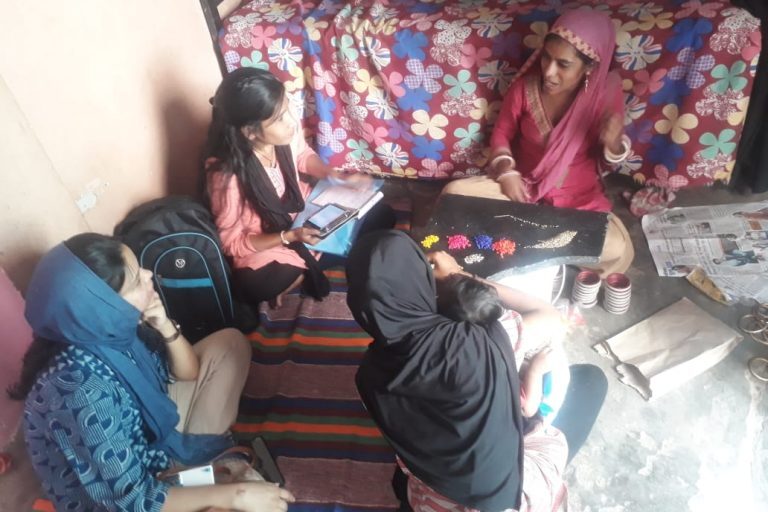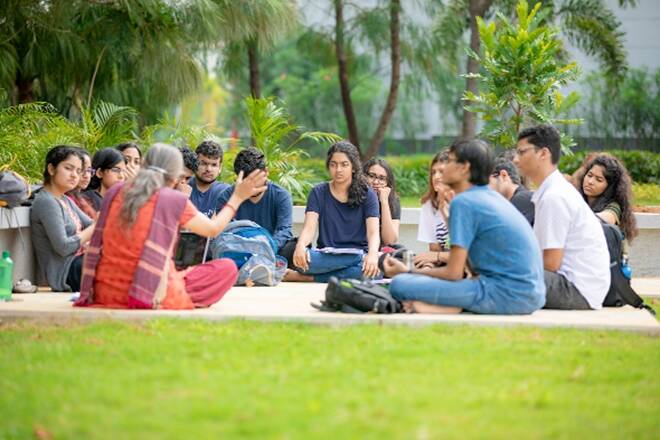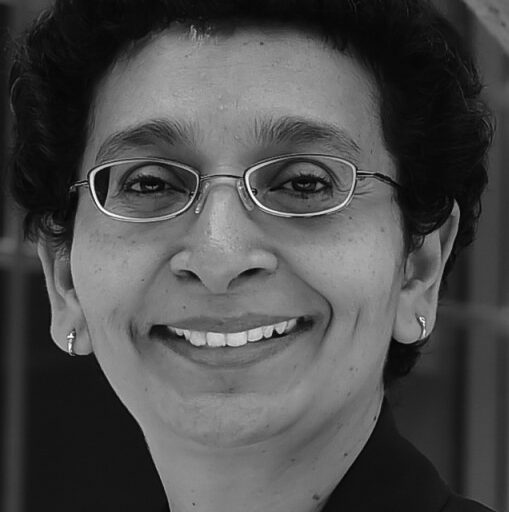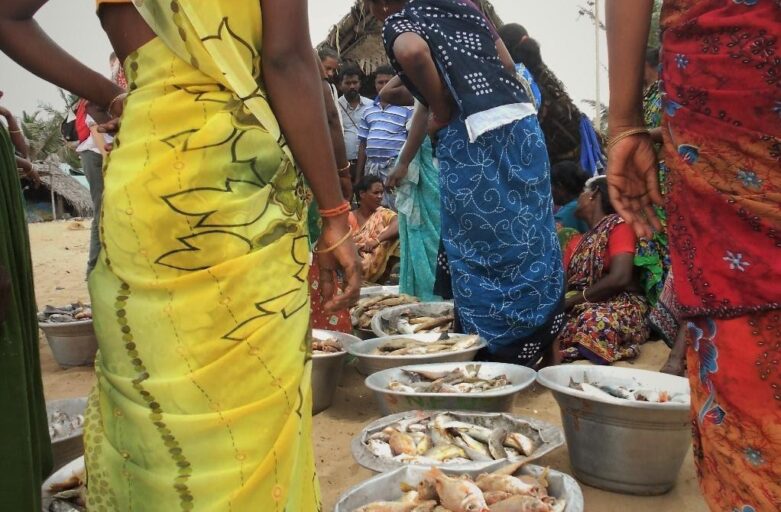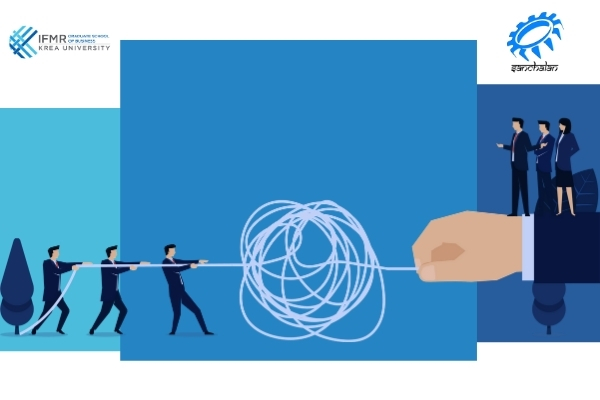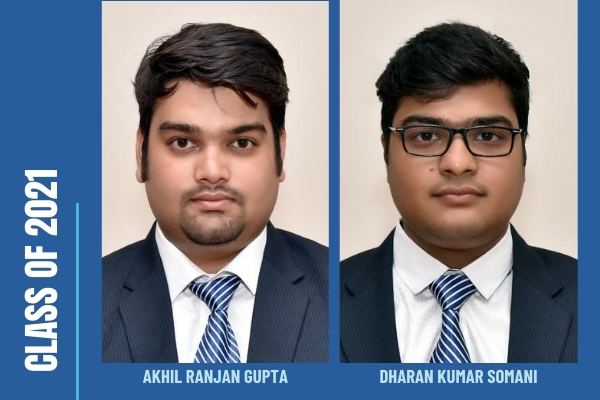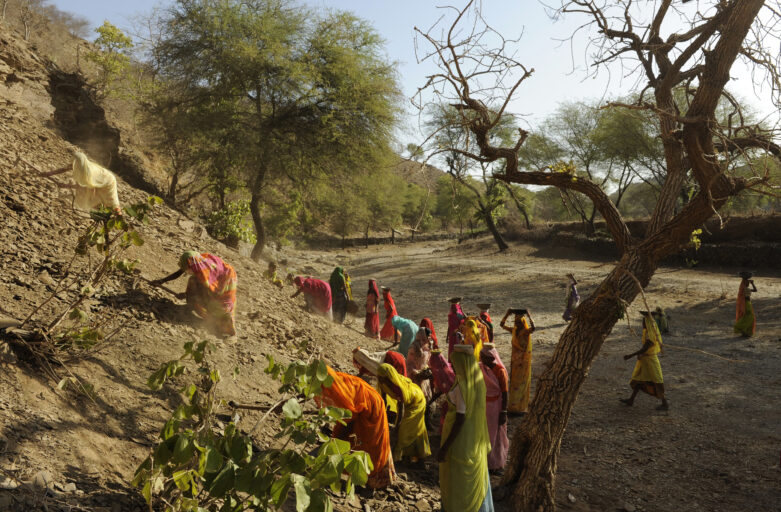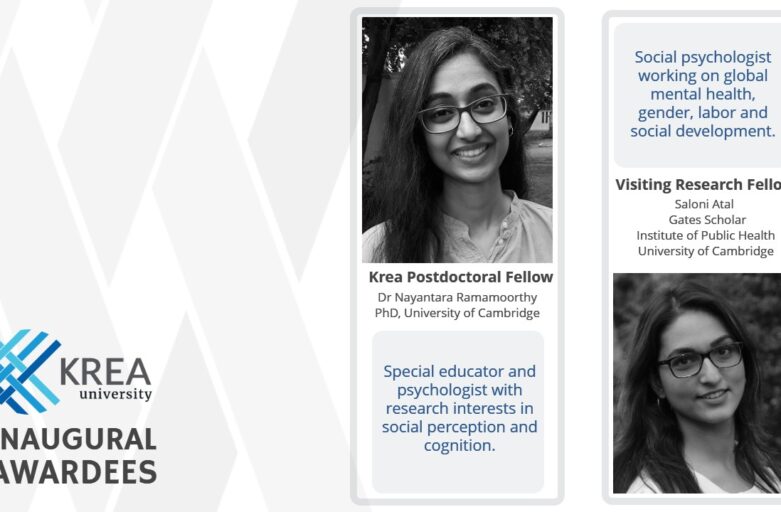Anoushaka Chandrashekar and Fabrizio Valenti pen this final installment in the three-part blog series – ‘Beyond Health: How the COVID-19 pandemic is impacting financial services in India’. Based on discussions with founders of two fintech companies, this piece looks at implications of the COVID crisis on fintechs in India. It explores the challenges faced by fintechs in the current context, and highlights opportunities for growth.
Category: Spotlight
Vice-chancellor Sunder Ramaswamy shares the learning narrative
Emphasising on Krea’s mission statement ‘to help humanity prepare for an unpredictable world’, Dr Sunder Ramaswamy discussed how classes weren’t just about dispensing information, but rather about aiding students to learn, to think like a mathematician, a scientist, a philosopher.
Shobha Das on world post COVID-19
Dr Shobha Das, Dean at IFMR GSB shared her perspectives on the world post COVID-19 and its domino effect on organizations. The panel of experts discussed ‘COVID19 Impact on Innovation and Innovation Trajectories’ in an e-conclave hosted by IIM Sirmaur. The discourse featured thoughts on COVID-19’s impact on Innovation processes, role of technology, healthcare products, and challenges for leaders and organizations in revamping innovation trajectories.
COVID-19 and the Future of Seafood Markets in Chennai
IFMR GSB student committee presents pan India contest ‘Entangled’
With a rush of adrenaline and picking a lesson from the looming crisis of today, comes ‘Entangled’. A unique case study competition hosted by Sanchalan – the IT and Operations Student Committee from IFMR GSB, challenging graduates with prioritization and resource allocation skills during crisis.
600 participants from across India geared up to compete, make an impact and win the contest. Contestants from 190 institutes and 20% of them from top tier ones vied for the ultimate spot in this innovative case study competition.
IFMR GSB students bag CFA Institute scholarships
IFMR GSB students, Akhil Ranjan Gupta and Dharan Kumar Somani from the class of MBA 2019-21 have secured the prestigious CFA Institute scholarships.
Markaholic, IFMR GSB Marketing Committee hosts ‘Markaz’
Markaholic, the Marketing Committee of IFMR GSB, Krea University organized a 5-day long marketing event, ‘Markaz’. The event aimed to provide exposure about marketing to the first-year students in a non-academic manner where they were required to use their knowledge and creativity to answer a marketing quiz and four other rounds which were to test their marketing creativeness.
Pratyush Misra, Amit Kumar Sahoo and Shreyans Bandi were the winner, 1st runner up and 2nd runner up, respectively.
Students recreate Krea University campus through a virtual spectacular
With 800 hours of development and able support from the University’s Media Lab, four young Krea students have created a virtual tour of the state of the art Krea campus, using Minecraft tool.
With their relentless efforts, four young Krea students Arnav, Nikhil, Priyam and Shreya have re-created the Krea campus experience .
“In the midst of our online classes and Zoom coffee chats, we often thought of how the campus has been a hallmark in bringing us together as a cohort. Given the current state of the pandemic, a group of us decided to recreate our campus virtually to give our batch, faculty, and administration a sense of nostalgia while also giving the incoming batch an immersive and exciting preview of our campus”, adds a member of the student team.
For our students, the Krea campus goes beyond being just a physical space. Nestled in the green but equally well connected to urban zones, the campus imparts a sense of belonging as students and faculty co-create a learning experience.
Located 70 kilometres north of Chennai in Sri City, the 40-acre fully residential green campus is equipped with places to learn, engage and play. In line with its academic goals, Krea University’s ‘smart’ campus is a design driven space, which stimulates learning and interaction. Apart from tech enabled learning spaces and facilities, the campus provides the infrastructure for sporting, cultural and other leisure activities. The campus facilitates enriching students’ academic and non-academic life at Krea.
From the academic blocks to contemporary accommodation, student lounges to sports facilities, open air theatre to learning labs, library, dining spaces, support centres and more, the ethos of the physical campus has been seamlessly captured into the virtual experience.
This is not the first time that Krea students have come together to keep the Krea experience intact beyond the physical realm. In May this year, they created Kreakast- – an open immersive platform, where activities, forums, discussions and events continued, sustaining the Krea ambience and unique student experience.
Media Mention- http://bweducation.businessworld.in/article/Students-Recreate-Krea-University-Campus-Through-A-Virtual-Spectacular/11-08-2020-307526/
Can COVID-19 change social protection in India for the better?
COVID-19 has exposed the glaring holes in India’s social welfare delivery system. LEAD’s Raka De and Anjani Balu pen down this piece on the deficiencies in the current architecture and suggest how the pandemic may prove to be an impetus for strengthening last-mile delivery of welfare benefits and services in India.
Krea announces Post Doctoral and Visiting Research Fellows
Krea welcomes Dr Nayantara Ramamoorthy, the awardee of the inaugural Krea Faculty Fellowship 2020 and Saloni Atal, our Visiting Research Fellow. Their strong expertise in Psychology ably propels the research vision at Krea. Krea Faculty Fellowship and Visiting Research Fellowship are set up with an aim to strengthen the research mandate at Krea.
Dr Nayantara Ramamoorthy, did her PhD in Psychology at the University of Cambridge with a research focus on attentional mechanisms in gaze perception — the underlying mechanisms that guide individuals to attentionally prioritise one gaze type (e.g., direct gaze) over the other (e.g., averted gaze) when viewing another’s gaze. She has a Masters in Developmental Psychology from Maastricht University, The Netherlands and a Bachelors in Psychology from the University of Delhi. She has also worked as a special educator at the Centre for Child Development and Disabilities, Bangalore, where she designed and implemented intervention plans for children with Autism Spectrum Disorder and trained parents to be active participants in the intervention process. Nayantara’s broader research interests lie in social perception and cognition, particularly with a view to understanding underlying pathways in neuro-atypical gaze perception.
Saloni Atal, MPhil, is a PhD student and a Gates scholar at the Institute of Public Health at the University of Cambridge. Saloni is a social psychologist and works on global mental health, gender, labor and social development. Through her research, she aims to provide policy-relevant evidence that drives change on the ground. She is particularly interested in the socio-political economy of mental health and in developing contextually sensitive tools to measure women’s agency and empowerment. She uses mixed research methods and takes an interdisciplinary approach, drawing on sociocultural theories of knowledge, critical development studies and transnational feminist perspectives.
